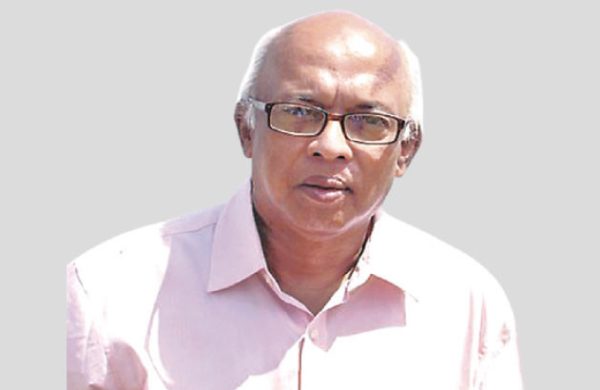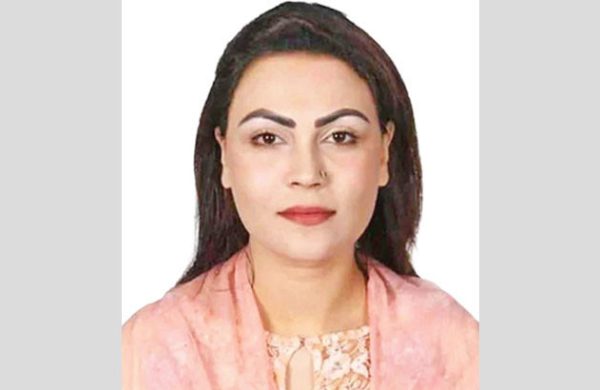Ministerial pronouncements and the rule of law
- Update Time : Thursday, June 6, 2024

—Syed Badrul Ahsan—
The Benazir Ahmed issue goes on exercising minds in the country. It will not go away any time soon, the expectation being that nothing will be done by anyone to have the scandal fizzle out. Meanwhile, the former inspector general of police has made his way out of the country. That is a shame.
That clearly raises the question of whether, if at all, he will return home soon or the government will adopt the necessary measures to bring him home to answer all the questions raised about his unnatural accumulation of wealth in the media.
One does not have much hope that the man will return. All those recent incidents of the corrupt — people looting banks in an official capacity, individuals buying homes through corrupt money abroad and men simply fleeing the country with resources not theirs because they mean to sit out the pressure on them in the safety of overseas clime — somehow do not convince us that anything that will revive faith in our justice system will be there.
It is a tragedy for the nation — and we so proudly came by freedom through untold sacrifices more than five decades ago — to know that justice has become an elusive reality in Bangladesh.
If Benazir Ahmed and his family have left the country and are in Singapore or some other place, the very credible question the authorities need to answer is simple: How did they leave the country, and especially at a time when the Anti-Corruption Commission had already summoned them to its offices for June 6?
It is not to be believed that the individual in question had his own free means of flying out of Bangladesh, which leads one to the next question: Who aided him in his flight out of the country? It will be easy to point the finger at airport or other immigration services for the misdeed. But will that be a good enough conclusion to arrive at? What powerful forces facilitated that departure from the country? And how do we zero in on them?
A minister has reportedly let it be known that there was no bar to the former IGP leaving the country. That is a surprising statement, given that the ACC had gone for measures toward inquiring into the entire sordid story of the allegations made against the individual in question. It is standard procedure in any society for steps to be taken to ensure that people accused of grave wrongdoing are not permitted to go missing. In our present case, the former IGP has gone missing. That has done little to uphold the image of Bangladesh.
The story gets increasingly bizarre. Another minister has reassured the nation that if Benazir Ahmed is found guilty in the cases that might be brought against him, he will have no choice but to come back to the country. Since when have we had any instance of an individual pronounced guilty of illegal activities at home returning from his hideout abroad to meet the terms of the judgment against him? One who flees does not return. That is the unvarnished truth.
The system of justice does not work that way. What ought to have been done here is for the authorities to inform the country that the man who has fled will be brought back home to face trial on the allegations that have surfaced about the properties he has questionably come to be the owner of.
Ministerial gravitas is an essential component of governance. One expects ministers to speak on issues of public interest and concern in ways which inform the country that things are under control, that wrongs will be righted, that competence is the benchmark of performance. But that gravitas becomes a casualty when a minister improbably informs the media that he is not aware of whether or not Benazir Ahmed has left the country.
The question here is one of whether his officials, the bureaucrats and the police who operate under him, kept him briefed on developments following the revelations about the former IGP in a couple of newspapers owned by a business conglomerate. Did the minister keep in touch with his officials on the subject? If he did, why did reports soon emerge of Benazir Ahmed’s leaving the country even as a scandal grew and swirled around him?
On a rather related subject, a minister thought the other day of sharing his ideas on the General Aziz issue with the media. He made it clear that if any action was to be taken against the former army chief of staff, it would need to be undertaken by the army. That is simply not the way to deal with the matter, for Aziz is no more in the army, having gone into retirement quite some time ago.
Whether the sanctions imposed on him and his family by Washington are to be gone into in greater detail here in Dhaka are for the government to dwell on. The former army chief is now a civilian and therefore any measure aimed at examining or investigating the allegations against him will need to be undertaken under civil law. The army, having once been headed by him, is now free of him and so logically will have little or nothing to do with the case against him.
These are embarrassing times for the government. The Benazir and Aziz issues have dealt it a bad blow. Add to that the murder of a ruling party lawmaker in Kolkata. In patent terms, it is an embattled government which needs to reassert its authority through carrying out a wholesale purge of the bad apples in its basket. And it needs to come clean with the public on the details behind all these happenings.
In a month where the foundational principles of the Awami League will be reflected on in terms of national history — remember June 23 1949 — it becomes critical that the party regain the ground it has lost to the insidious working of elements indifferent to popular aspirations.
The ruling party and the government it heads have consistently emphasized zero tolerance as policy against corruption and criminality. It is time for that policy to be seriously put into implementation mode — through bringing back home, to face the law, those who have fled the country with wealth which is public property.
It is not enough to say, and repeatedly, that the guilty will face justice, that the law applies equally to all. This nation waits to see that justice is being done, that the corrupt are being hunted down, that the objectives for which Bangladesh’s people went to war more than five decades ago are being reasserted and restored.
In these parlous times, strong and purposeful leadership is called for. A fresh beginning in governance, a clean slate, is the requirement at this time.
(Syed Badrul Ahsan is a veteran journalist of the country)



















